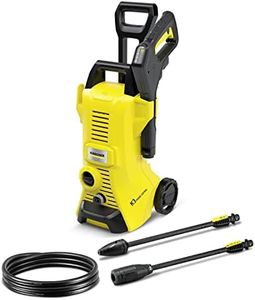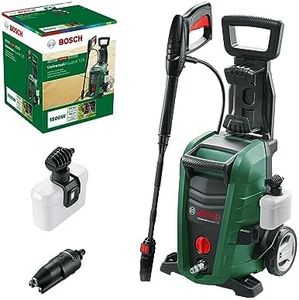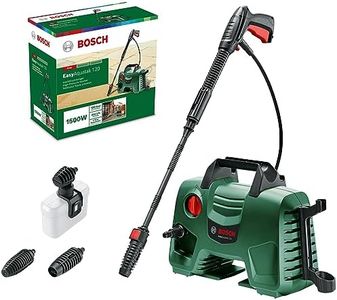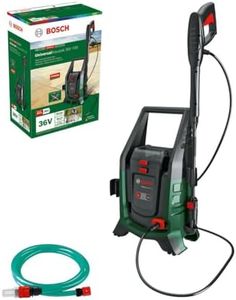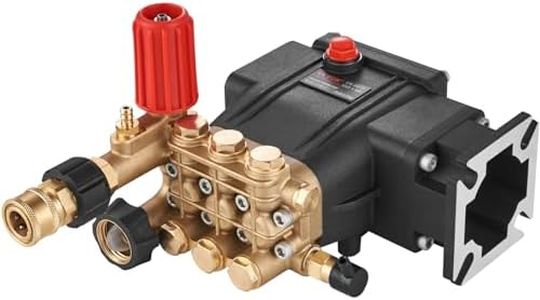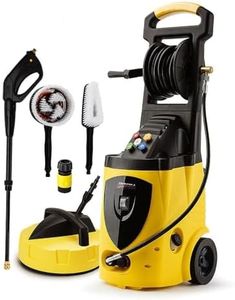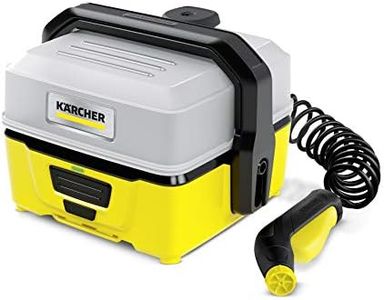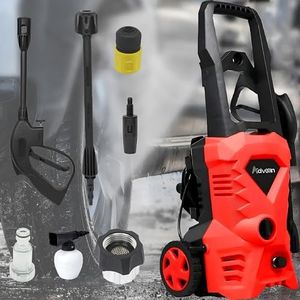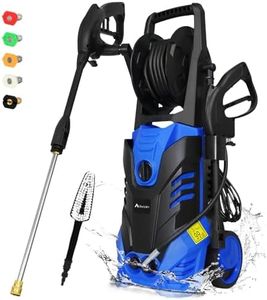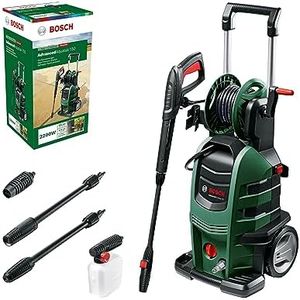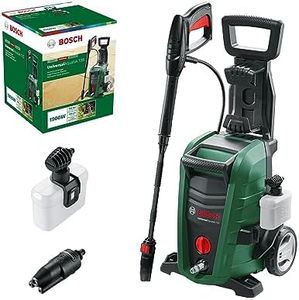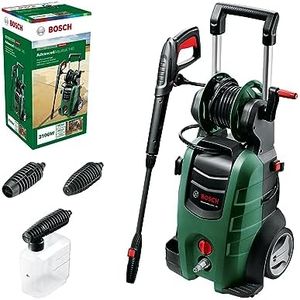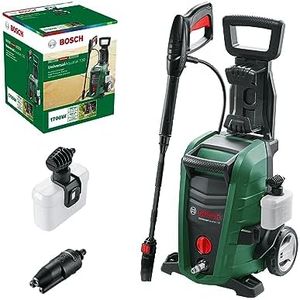We Use CookiesWe use cookies to enhance the security, performance,
functionality and for analytical and promotional activities. By continuing to browse this site you
are agreeing to our privacy policy
10 Best Home Power Washers
From leading brands and best sellers available on the web.By clicking on a link to a third party's website, log data is shared with that third party.
Buying Guide for the Best Home Power Washers
Buying a home power washer is a great way to tackle outdoor cleaning jobs that are too tough for regular hoses. These machines can clean driveways, decks, siding, cars, and many other surfaces more quickly and thoroughly. The main things to consider are what you’ll use it for most often, how often you plan to use it, and your comfort level with handling the equipment. Understanding the key specs will help you find a power washer that meets your needs without being too weak or too aggressive.Pressure (PSI)PSI stands for pounds per square inch and measures the water pressure coming out of the washer. A higher PSI means more powerful cleaning. Light-duty washers are around 1300–1900 PSI and are good for smaller jobs like cleaning cars, bikes, or patio furniture. Medium-duty models range from 2000–2800 PSI and work well for patios, fences, and decks. Heavy-duty washers have 2900 PSI and above and are meant for larger areas or very dirty surfaces like driveways. Think about the toughest job you’ll need to do regularly—if you mostly want to wash cars, a light-duty washer is enough, but for removing tough stains on concrete, a stronger machine is better.
Water Flow (GPM)GPM stands for gallons per minute and measures how much water flows through the washer. Higher GPM means you can rinse dirt off faster because more water is coming out at once. Home models usually have a GPM between 1.2 and 2.5. Lower GPM models save water but may take longer to clean large areas. If you want to finish big jobs quickly or wash heavy dirt or mud, look for a higher GPM. For occasional household tasks, a lower GPM is usually fine.
Power SourcePower washers for the home usually run on electricity or gas. Electric washers are quieter, lighter, and easier to maintain, and they’re great for most household cleaning tasks. Gas models are more powerful and better for cleaning large or very dirty areas, but they are heavier, louder, and require more upkeep. If you want something simple for occasional cleaning, electric is the way to go. For tackling larger jobs or places without easy access to electricity, a gas-powered unit might be better.
Nozzle OptionsDifferent nozzles change the shape and power of the water spray, which helps you match the pressure to the task. Most home power washers come with a variety of nozzle tips or an adjustable nozzle. A narrow nozzle focuses the pressure for tough jobs, while a wider nozzle spreads the water out for gentler cleaning. Some come with special tips for soap or low-pressure applications. If you want a washer that’s versatile and safe for different surfaces, make sure it comes with several nozzle options or an all-in-one adjustable nozzle.
Portability and StorageHow easy it is to move and store your power washer matters, especially if you have limited space or plan to use it in different places. Key things to look at are the weight, wheel size, and whether it has a good handle. Some models are compact and lightweight, making them easy to carry and store. If you don’t want to lift heavy equipment or have tight storage, look for a smaller, portable design.
Hose LengthThe length of the hose affects how far you can reach away from the machine when cleaning. A longer hose (20–35 feet) allows you to clean without moving the washer often, handy for large decks or driveways. Shorter hoses (under 20 feet) may require you to reposition the washer more often. Think about the size of the areas you’ll be cleaning—if you have a big driveway or yard, a longer hose is more convenient.

